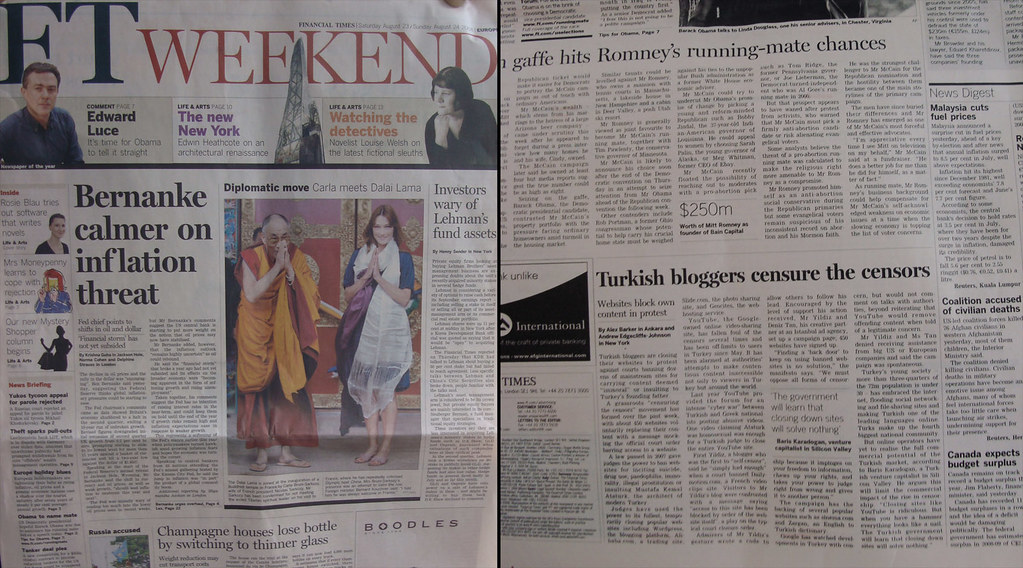 Turkish bloggers censure the censors
Turkish bloggers censure the censors
ByAlex Barker in Ankara and Andrew Edgecliffe-Johnson in New York
Published: August 22 2008 17:03 | Last updated: August 22 2008 17:03
Turkish bloggers are closing their websites to protest against courts banning dozens of mainstream sites for carrying content deemed “immoral” or insulting to Turkey’s founding father.
A grassroots “censuring the censors” movement has formed over the past week, with about 450 websites voluntarily replacing their content with a message mocking the official court order barring access to a website.
A law passed in 2007 gave judges the power to ban websites for inciting suicide, drug use, paedophilia, immorality, illegal prostitution or insulting Mustafa Kemal Ataturk, the architect of modern Turkey.
Judges have used the power to its fullest, temporarily closing popular websites including WordPress, the blogging platform, Alibaba.com, a trading site, Slide.com, the photo sharing site, and Geocites, the webhosting service.
YouTube, the Google-owned online video-sharing site, has fallen foul of the censors several times and has been off-limits to users in Turkey since May. It has been alarmed at authorities’ attempts to make contentious content inaccessible not only to viewers in Turkey but around the world.
Last year YouTube provided the forum for an intense “cyber war” between Turkish and Greek nationalists posting abusive videos. One video claiming Ataturk was homosexual was enough for a Turkish judge to close the entire YouTube site.
Firat Yildiz, a blogger who was the first to “self-censor”, said he “simply had enough” when a court banned Dailymotion.com, a French video clips site. Visitors to Mr Yildiz’s blog were confronted with a message saying “access to this site has been blocked by order of the website itself”, a play on the typical court closure order.
Admirers of Mr Yildiz’s gesture wrote a code to allow others to follow his lead. Encouraged by the level of support his action received, Mr Yildiz and Deniz Tan, his creative partner at an Istanbul ad agency, set up a campaign page; 450 websites have signed up.
“Finding a ‘back door’ to keep on using banned websites is no solution,” the manifesto says. “We must oppose all forms of censorship because it impinges on your freedom to information, chews up your rights, and takes your power to judge right from wrong and gives it to another person.”
The campaign has the backing of several popular websites such as sinema.com and Zargan, an English to Turkish dictionary.
Google has watched developments in Turkey with concern, but would not comment on talks with authorities, beyond reiterating that YouTube would remove offending content when told of a legitimate concern.
Mr Yildiz and Ms Tan denied receiving assistance from big US or European companies and said the campaign was spontaneous.
Turkey’s young society – more than three-quarters of the 72m population is under 30 – has embraced the internet, flooding social networking and file-sharing sites and making Turkish one of the leading languages online. Turks make up the fourth biggest national community.
But online operators have yet to realise the full commercial potential of the Turkish market, according to Baris Karadogan, a Turkish venture capitalist in Silicon Valley. He argues this will limit the commercial impact of the rise in censorship. “Closing sites like YouTube is ridiculous. But when you have a hammer everything looks like a nail. The Turkish government will learn that closing down sites will solve nothing.”

